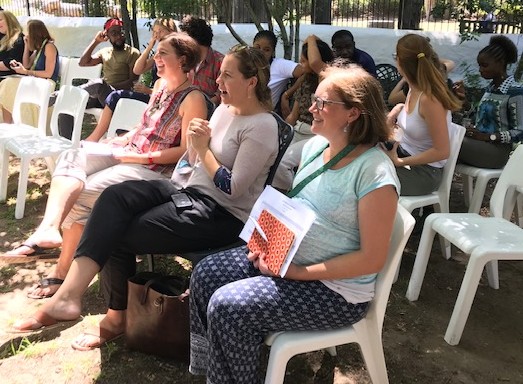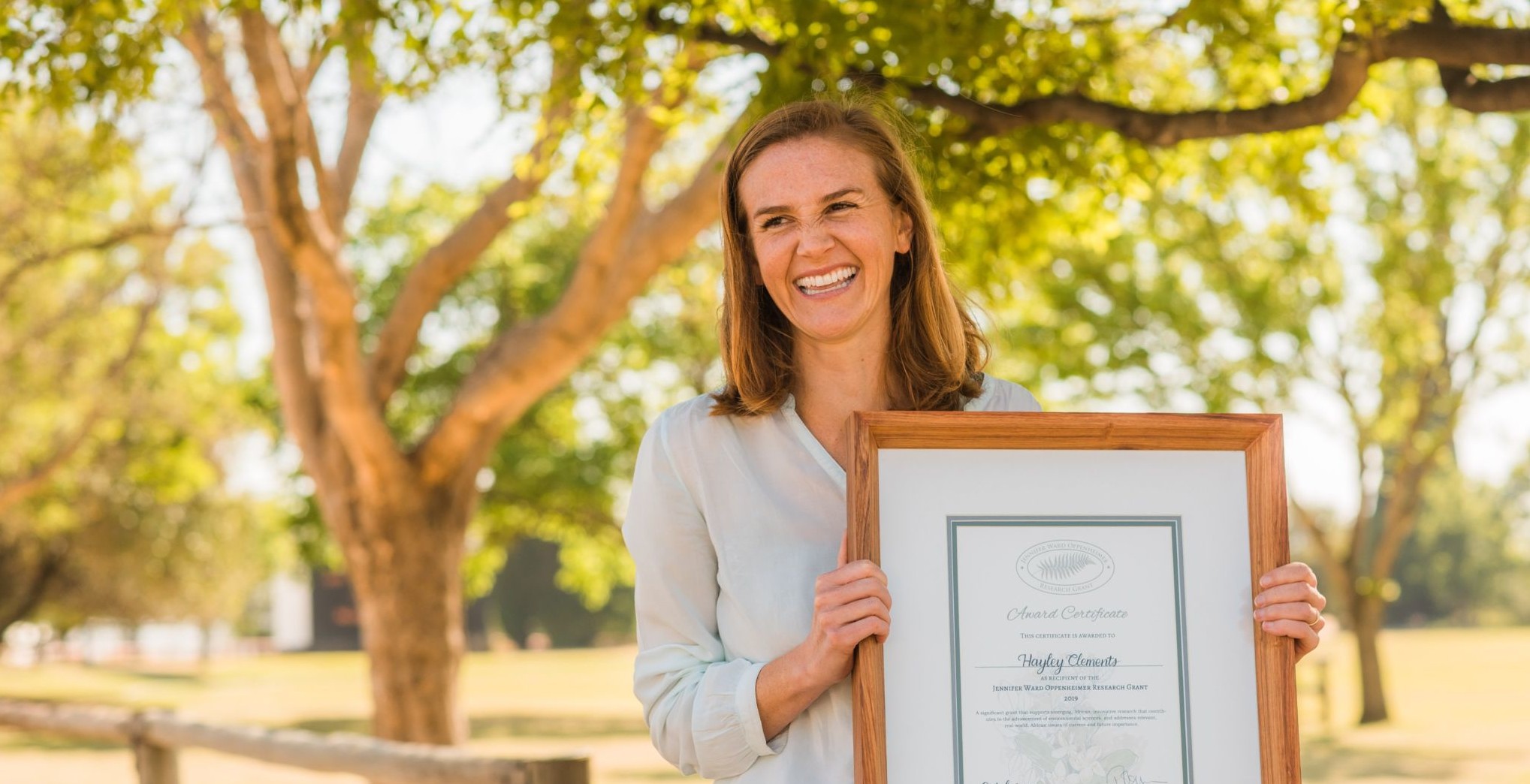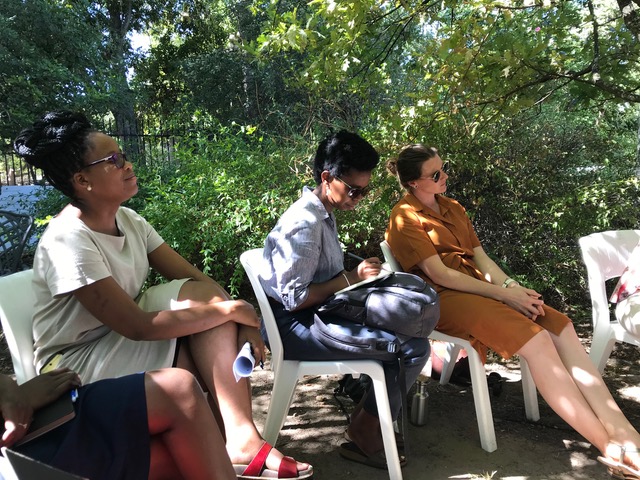Annually, International Women’s Day is celebrated on 8 March to celebrate the achievements of working women. According to United Nations data, women make up less than 30% of scientific researchers worldwide.
Evidence suggests that many women are discouraged from entering STEM-related fields from a young age, and yet despite significant challenges such as differing standards for the genders, numerous women have made significant contributions to science with the Centre for Complex Systems in Transition an excellent case in point.
Co-Director of the Centre, Prof Oonsie Biggs, holds a DST/NRF South African Research Chair ( SARChI) in Social-Ecological Systems and Resilience. She is an NRF P-rated researcher, and holds a joint appointment in the School of Public Leadership at Stellenbosch University, and the Stockholm Resilience Centre at Stockholm University in Sweden. Prof Biggs coordinates the Southern African Program on Ecosystem Change and Society (SAPECS), a network of researchers and practitioners working on social-ecological systems in the southern African region (see www.sapecs.org).Unquestionably Oonsie’s leadership plays a role in paving the way for more female researchers to come through.
In light of International Women’s Day some of the CST team share their reflections on the place of women in science.

“Living in Sweden really alerted me to the massive difference institutional structures can have in reshaping norms, and making a real difference to the lives and career potential of working mothers. In Sweden, parents can decide on how they want to share their parental leave allocation, and each parent is required to take at least two months of leave, so the burden of taking time off work doesn’t all fall on women alone, and it also gives both parents the opportunity to get to know and bond with their child. This also spills over into the day-care years; many working couples take turns going to get kids in the afternoon. I recall one international meeting in Sweden where all the Swedish men got up and excused themselves at 3pm to fetch their kids; there were a bunch of young American women attending the meeting, and they were totally astounded!”
- Prof Oonsie Biggs, Co-Director of the CST

“I feel so grateful to be able to pursue a career in science that inspires, motivates and challenges me every day. I have been extremely fortunate to have had excellent mentors in my life and career (both men and women) that have treated me as an equal and demonstrated that both genders can lead successful scientific careers. It deeply saddens me that not everyone gets to embark upon their desired career due to one or more dimensions of discrimination or exclusion. We need improved understanding and action towards a more just and sustainable world. If research towards this understanding excludes women or another segment of society, we are less likely to harness the diversity of ideas and actions necessary to achieve the ambitious but essential goal of a just and sustainable world.”
- Dr Hayley Clements, Researcher
“I think it is essential to have women advocating for women in every discipline, especially those that are male-dominated. These women in science are trail-blazers and are paving the way and opening doors for young women who would like to forge their own paths in science but may feel inferior or doubt their career paths. Representation matters. And seeing women coming into their own in the field of science inspires.”
- Tsegofatso Tshoke, MSc student
“It seems to me that just about all of our sustainability challenges rely on us finding ways of undoing what has been achieved by mankind since the advent of the Industrial Revolution. Of course, we are required to go much further than merely reversing, through to relinquishing, reconciling, reimagining and regenerating. This is certainly the case for how we contend with the challenge of transforming the energy sector and moving societies away from fossil fuel dependence. It is my view that cocreating these responses, and ensuring fairness and equity as we pursue strategies for change requires wider representation, including the voices and contributions of women. As an aspiring transdisciplinary researcher and practitioner, I am fired up about how my involvement in the energy sector, in particular the governance of South Africa’s energy transition, might contribute towards cultivating creative and radical responses to our contemporary challenges.”
- Megan Davies, PhD student
“It is crucial that women in governance and particularly state capture research call out other women that use their gender and the genuine need for dismantling patriarchy as a cover (or to play victim) for them colluding to enable state looting and abuse of power (which actually reinforces patriarchy and strong man politicians). In my research I focus on the role of Bathabile Dlamini as ANCWL president and minister of social development.”
- Robyn Foley, Researcher
“Since entering the field of anticorruption and governance, I am so encouraged by the number of women scholars, investigators, lawyers, civil society leaders and writers in this field. What I have noticed in many of these women is a desire to relate the impact of corrupt governance back to citizens, back to everyday life. There can often be a preoccupation with public administrative diagnostics and remedies in how we conceive of the impacts and challenges. I suspect with so many women committed to sound governance, a greater intersectional lens is being applied to corruption and governance studies, while examining masculine modes of governance as expressions of patriarchy and finding spaces for different kinds of resistance and building alternatives. I am encouraged by how women in this space not only advocate for inclusive and just policy, laws, economics and communities of care, but for the potential in these and other feminist contributions to reshape our understanding of the state and our roles and responsibilities in establishing lived democratic norms.”
- Nina Callaghan, Masters Student
“I am extremely privileged to have been able to turn my longstanding fascination with the natural world intertwined with the people and cultures who have co-evolved with it into a career. Scientist, mum, woman, ally, daughter, supervisor, advocate, citizen… navigating the intersection of all these roles has the potential for one to be a transformative force in society through understanding the world from multiple points of view. We know that diversity makes us more resilient, yet when we look around in science, it is largely shaped by pale males from the global north. For me, being a woman in science means acknowledging and leveraging my privilege to nudge the many systems we operate in to be more inclusive, diverse and equitable without eroding fundamental natural life-support systems.”
- Dr Nadia Sitas, Researcher
“My Women in Science role models had to ignore, confront, and overcome many challenges to establish themselves in the sustainability research field, and they have since used their positions to pave the way for new generations of women in science. They are fearless, and set examples for how to conduct ground-breaking, ambitious research, yet be kind, caring, and generous.
I, fortunately, have always had strong female role models throughout my undergrad and postgrad experience, as well as during my PhD. In fact, my research and career has been shaped mainly by women. But I think many others have a different experience, and there’s more and more research showing a significant gender bias in STEM, and many barriers along the way for women in science – for example, this graphic from a recent (2018) article in Nature Ecology&Evolution.

That said, such graphics don’t talk about the elephant in the room, which is really at the heart of many of these issues – in my opinion – and that is the fact that women are the ones who give birth, and the ones who are usually impacted negatively in their career for having children. If you’re lucky, you just get a temporary set-back. If you’re unlucky, it can throw off your whole trajectory. So for me, one of the most important ways to enhance the position of women in science is to level the playing field in terms of parental leave, like they do in Sweden.”
- Dr Maike Hamman, Researcher.


